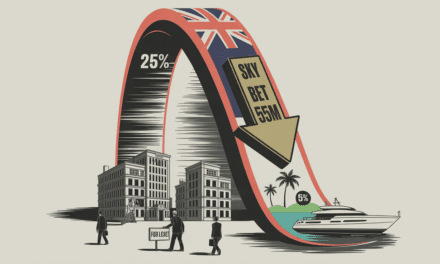Government Tightens Grip on Gambling with Steep Tax Increases
Rwanda’s Ministry of Finance has implemented a dramatic tax increase on the nation’s gambling sector, marking a significant shift in the government’s approach to revenue generation.
In a press conference, Finance Minister Yusuf Murangwa announced that the Gross Gaming Revenue (GGR) tax would soar from 13% to 40%, a substantial leap that will undoubtedly impact regulated operators in the country. Additionally, the withholding tax on player winnings is set to rise from 15% to 25%, further tightening the financial conditions for both industry stakeholders and consumers.
Murangwa framed the move as part of a broader economic strategy, stating:
“As we continue to build a robust economy and transform the livelihoods of all citizens, the reform of the gambling tax regime is a pivotal part of our medium-term strategy. These measures not only strengthen our resilience but also promote self-reliance, allowing us to meet our development goals effectively.”
While the government insists these tax hikes will contribute to long-term economic stability, industry experts warn that such aggressive measures could drive gambling operators out of the market or push bettors toward unregulated alternatives.
A Widening Tax Net: Mobile Phones and Digital Services Also Targeted
The gambling sector isn’t the only industry feeling the squeeze. The Rwandan government has also removed tax exemptions on mobile phones, arguing that with 80% of the population now using mobile devices, the initial incentive is no longer necessary.
Further afield, international digital services such as Netflix and Amazon have also been hit with increased taxation, a move the government justifies as an effort to “drive economic growth and strengthen domestic resource mobilization.” This aligns with a broader trend across Africa, where governments are increasingly taxing foreign tech companies to retain more economic value within their borders.
Economic Uncertainty Amid Rising Diplomatic Tensions
The sweeping tax hikes come at a time of heightened economic and political uncertainty for Rwanda. International scrutiny has intensified following allegations of Rwandan support for M23 rebels in the Democratic Republic of Congo (DRC), which recently escalated after rebel forces seized control of the strategic city of Bukavu.
British Foreign Secretary David Lammy issued a stark warning in late January, stating that Rwanda risks losing up to $1 billion in global aid, including £32 million ($39.8 million) in bilateral assistance from the UK, if it continues its involvement in the DRC conflict.
“We in this House are clear that we cannot have countries challenging the territorial integrity of other countries. Just as we will not tolerate it in the continent of Europe, we cannot tolerate it wherever in the world it happens,” Lammy declared in a parliamentary session.
His warning aligns with broader international concerns, with European and UN representatives cautioning that continued aggression could destabilize the entire region. At an emergency meeting of the Geneva-based Human Rights Council, UN High Commissioner for Human Rights Volker Turk expressed grave concern over the situation, warning:
“If nothing is done, the worst may be yet to come, for the people of the eastern DRC, but also beyond the country’s borders. All those with influence must act urgently to put an end to this tragic situation.”
Rwanda’s Economic Gamble: Is Self-Reliance the Answer?
With potential international funding cuts looming, Rwanda appears to be doubling down on economic self-reliance. By expanding tax revenue sources, the government aims to mitigate the risks of aid withdrawal while maintaining its ambitious development goals. However, some analysts argue that the government’s strategy could backfire if businesses struggle to absorb the financial burden or if foreign investors become wary of an unpredictable regulatory landscape.
For companies looking to enter the African gambling market, Rwanda’s tax overhaul serves as a stark reminder of the region’s complex and evolving regulatory environment. Industry expert Conor O’Donovan of Tekkorp recently highlighted the importance of local knowledge when navigating the African market:
“It’s important to be well aware that there are 54 countries in Africa, all presenting a very different scenario. Some are more established than others, with different levels of ease when it comes to doing business. If you’re going to enter organically, you need to do a deep dive on the most suitable territories. Operators need to ensure they aren’t too risk-exposed if they’re dipping their toes in the African waters.”
Final Thoughts: A High-Stakes Economic Shift
Rwanda’s sweeping tax reforms reflect a government striving to secure financial independence amid geopolitical uncertainty. However, the success of these measures will depend on whether businesses can absorb the rising costs—or whether they will be forced to seek opportunities elsewhere.
With the nation’s economic strategy evolving rapidly, stakeholders across multiple industries will need to adapt quickly or risk being left behind in an increasingly complex market.





